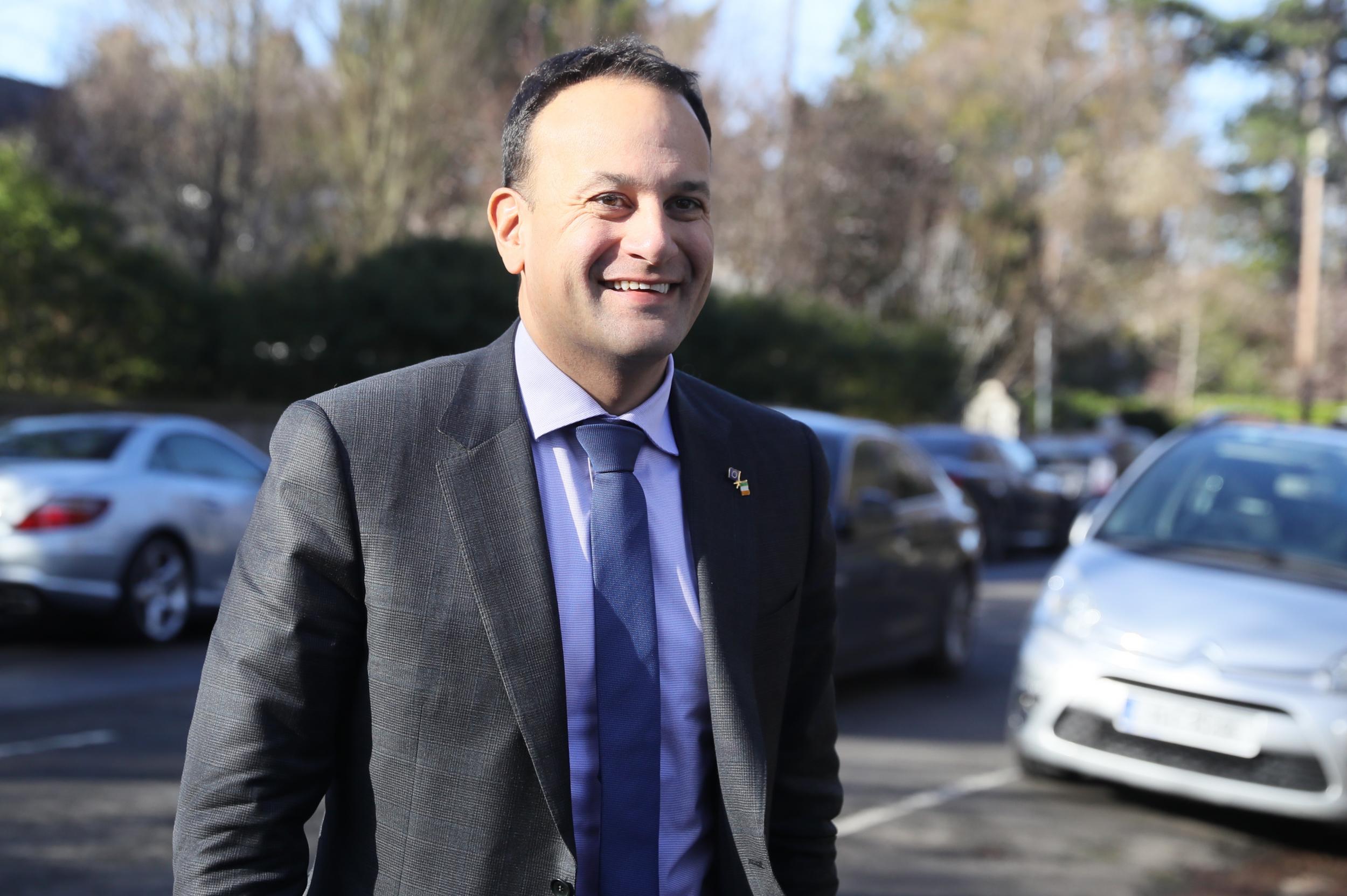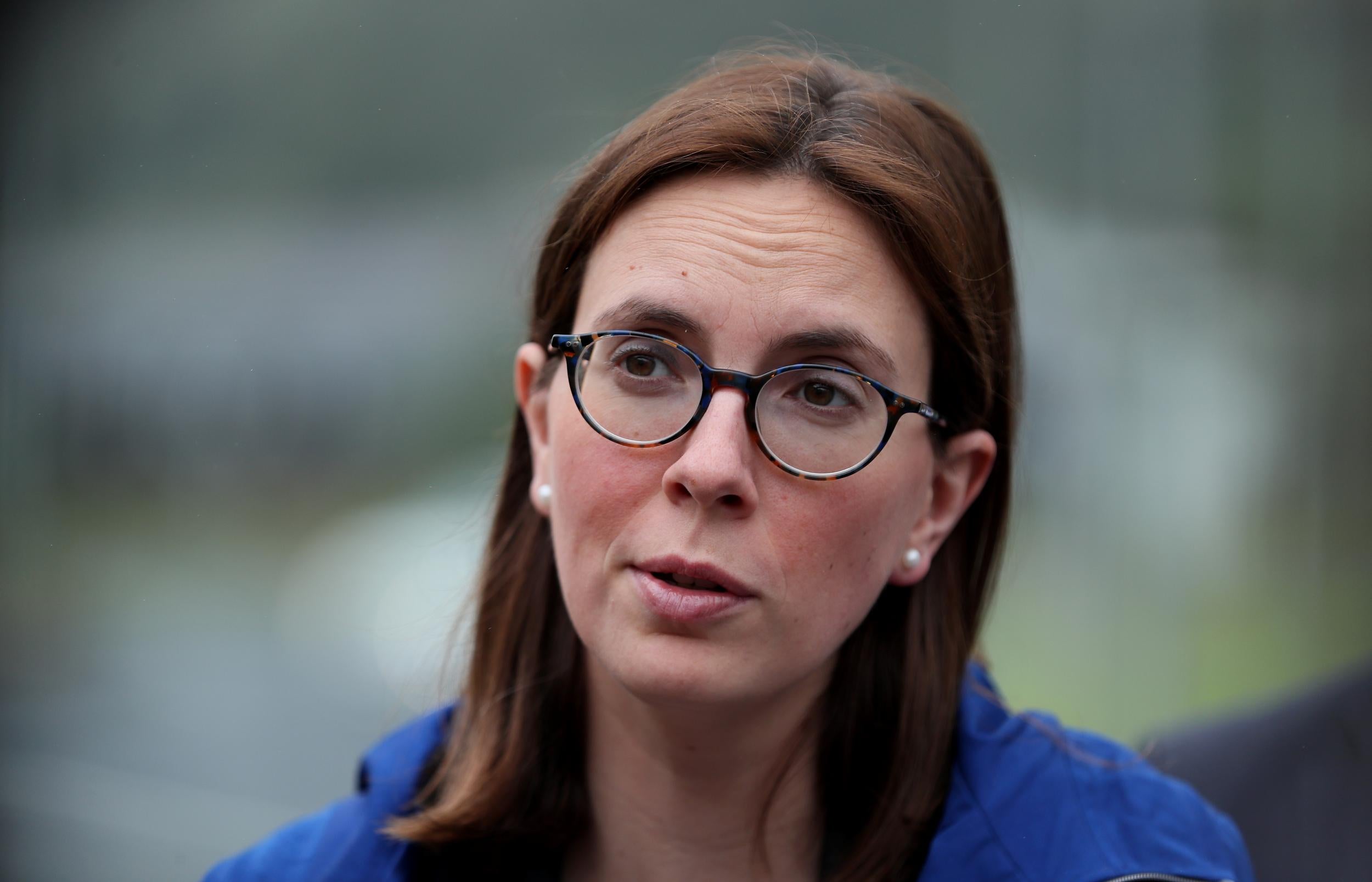No-deal Brexit threat returns as UK and EU harden up positions on future trade deal
Diplomats in Brussels agree mandate for talks due to start next week
The prospect of a no-deal Brexit was looming larger today as both the UK and EU hardened up their positions on future trade relations ahead of the start of formal negotiations next week.
In a victory for France’s Emmanuel Macron, diplomats in Brussels agreed a negotiating mandate which would require the UK to mirror EU rules and regulations on competition, workplace rights and environmental protections, with swift sanctions for breaches.
But Downing Street insisted that the UK’s “red line” in talks is now to break free from Brussels regulations and the oversight of European courts, rather than to maintain smooth trading relations following the end of the Brexit transition period on 31 December.
Boris Johnson’s official spokesman said there was “absolutely” no question of the prime minister extending talks on the future relationship with the EU beyond that date - after which the UK will crash out on World Trade Organisation terms if no deal has been agreed, with the potential for massive disruption to trade and travel.
Meanwhile, Irish premier Leo Varadkar warned London that there must be “no backsliding” on Mr Johnson’s commitment to establish a customs border down the Irish Sea.
And Paris warned that the EU would not allow Mr Johnson’s self-imposed deadline to be used to “blackmail” the bloc into a bad deal.
The mandate agreed in Brussels on Monday - and due to be rubber-stamped by foreign ministers of the 27 member states on Tuesday - states that any trade agreement “must ensure open and fair competition, encompassing robust commitments to ensure a level playing field”. This is Brussels code for matching regulations and standards, designed to avoid one side gaining a competitive advantage by cutting corners on food safety, state aid, workers’ rights or the environment.
And last-minute changes demanded by France stated that common high standards must be upheld “over time, with Union standards as a reference point”, making clear that the UK will be expected to keep pace with changing Brussels regulations in order to maintain access to the single market.
Under its plans, Brussels would have “the possibility to apply autonomous, including interim, measures to react quickly to disruptions of the equal conditions of competition”, effectively giving the EU powers to impose sanctions for breaches by the UK.
The wording puts the EU on collision course with Downing Street, which for the first time today made “independence” its overriding goal in talks.
“The UK’s primary objective in negotiations is to ensure that we restore our economic and political independence on 1 January 2021,” Mr Johnson’s official spokesman said.
Asked later whether this meant that avoiding alignment with Brussels regulations and preventing any role for the European Court of Justice in ruling on future trade disputes were greater priorities than ensuring smooth trade after the end of this year, a senior No 10 source said: “Yes.”
The source added: “Our overriding objective in the negotiations is by 1 January to have taken back control and we won’t agree to anything that doesn’t deliver that. Which means no rule-taking from the EU and no role for the European Court of Justice.
“Our red line is we have to have taken back full control by 1 January.”

UK ministers are to meet in the so-called XS (exit strategy) committee in Downing Street on Tuesday to agree the UK’s detailed mandate for talks on the future relationship with the EU, ahead of its publication on Thursday.
After reports that Mr Johnson had ordered his Brexit team to find ways to “get around” provisions of the UK’s withdrawal agreement requiring checks on goods travelling from the British mainland to Northern Ireland, Mr Varadkar warned that he expects the UK to honour its obligations “in full”.
He said there can be “no backsliding” and urged Mr Johnson’s government to focus on the next phase of negotiating a free trade agreement.
“We totally understand why they may want to minimise any checks at the ports and airports in Northern Ireland,” said the Taoiseach. “We want to do that too.
“But the agreement clearly says if there have to be checks anywhere, they would happen at the ports and airports in Northern Ireland rather than on the land border between north and south.
“So I am saying to the British government, there can be no backsliding on the withdrawal agreement. Let’s not even go there and let’s focus instead on what should be the next phase, which is negotiating a free trade agreement between the European Union and Ireland and the UK so we can protect jobs and our economy.”
The PM’s spokesman told reporters: “We have not asked any ports to prepare for new checks or controls between GB and Northern Ireland.
But he appeared to concede that some sort of controls or checks will be required from January 2021 on goods travelling from Great Britain to Northern Ireland.
The spokesman said that the new system would “ensure unfettered market access for goods moving from Northern Ireland to Great Britain”.
But asked repeatedly whether the same unfettered access would be available for goods travelling in the other direction, he would say only that the PM was clear that “beyond the limited changes introduced by the protocol” there would be no changes to GB-Northern Ireland trade
And he added: "We will comply with our obligations."
Brussels insists on checks on goods travelling from the mainland because of the possibility that they will enter the EU market by crossing the Irish border.

French Europe minister Amelie de Montchalin insisted that her country’s farmers, fishermen and businesses would not pay the price for a trade deal to be in place by the end of the year.
She told TV station France 2: “In this negotiation it must be understood by British businesses that we do not want a bad agreement – almost certainly, that we will sign up to no blackmail.”
Refusing to allow the UK to dictate the timetable, Ms de Montchalin said: “It is not because that Boris Johnson wants a deal at all costs for 31 December that we will sign, under pressure, a bad deal.”
In a further indication that access to UK fishing grounds will be one of the main flashpoints in the talks, the French minister said: “The fishermen have the right to be protected, they know very well that if we sign a bad deal they will lose enormously.”
Join our commenting forum
Join thought-provoking conversations, follow other Independent readers and see their replies
Comments